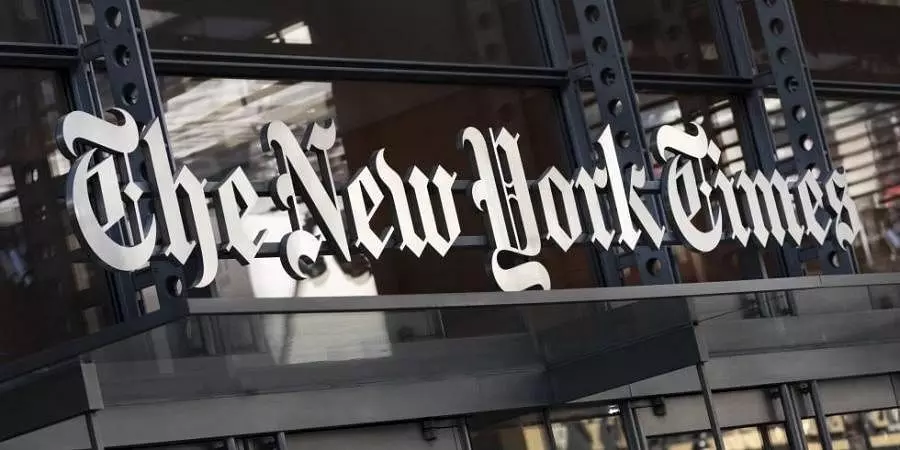
OpenAI, Microsoft sued by New York Times over copyright infringement
text_fieldsA sign for The New York Times | Photo: AP
Washington: The New York Times filed a lawsuit against Microsoft and ChatGPT creator OpenAI in a US court on Wednesday, claiming that the firms' powerful AI models improperly utilised millions of articles to train their bots.
The firms "seek to free-ride on The Times's massive investment in its journalism by using it to build substitutive products without permission or payment," according to the lawsuit, employing their AI chatbots to do so.
It accuses OpenAI and Microsoft of "using The Times's content without payment to create products that substitute for The Times and steal audiences away from it."
The article continued to note that the lawsuit included other instances in which a chatbot gave users nearly exact quotes from Times articles that would normally require a paid subscription to view, the New Indian Express reported.
There is no specific financial demand in the lawsuit. However, it states that "billions of dollars in statutory and actual damages" resulting from the "unlawful copying and use of The Times's uniquely valuable works" should be attributed to the defendants. According to a Times article on the lawsuit, it also requires the companies to erase any chatbot models and training data that contain copyrighted content from The Times.
The lawsuit comes after discussions between The Times, Microsoft, and OpenAI about possible payments and content usage protections came to a halt.











